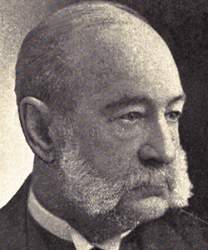Record Data
Transcription
Lincoln, [Jesse K.] Dubois and myself passed the day on the fair ground; no greater attention was bestowed on Lincoln than on any average visitor at the fair; for our dinner, I remember, we were indebted to some of my friends from Champaign who were picnicking there. Dubois and I chaffed Lincoln through the afternoon at the trotting match; and our victim, though pensive, entered into the spirit of our sport but rather wearily. A colored jockey drove one of the horses: we named him Lincoln, and Dubois and I got up small mock bets on his success.
Lincoln spoke of him as “my friend.” “There,” said he, “my friend is gaining,” etc. But Lincoln was in no frolicsome mood on that day.
Dubois went up on the main line to Decatur, and Lincoln and I waited for the Cairo train, which was to carry us to Mattoon en route to Charleston, where he was to debate again with Douglas on the 18th. Here was exhibited, in a characteristic manner, the different qualities of treatment accorded to Lincoln and to Douglas, by the officials and employes of the Illinois Central Railroad Company. George B. McClellan (afterward the General) was Vice-President of the company and took especial charge of Douglas – furnished him with the director’s car – and a platform car for his cannon and frequently went with him: I need scarcely add that the commissary department of the car was provided with several huge demijohns.
Lincoln traveled on an attorney's pass the same as I did, but he got no further courtesies. Knowing the division superintendent very well, I tried to secure for Lincoln, who was jaded, some little easy favor, but I was, not very graciously, repulsed. The entire management of the road, emulating McClellan's example, was in deadly hostility to Lincoln. Finally, by the favor of Mr. Bell, Lincoln and I got an apartment to ourselves, in what was called an apartment car, where we were entirely secluded; and notwithstanding Lincoln's weariness, he outlined to me, his designed mode of attack on Douglas, on the succeeding day, viz: by renewing Trumbull's charge on him of complicity with the slave power in forcing slavery on Kansas, through the Toomb’s bill – a complete inconsistency with his position on the Lecompton Constitution.
A reference to that joint debate will show the consternation with which Douglas was paralyzed at this unexpected attack.
Lincoln had become aroused and had taken the aggressive very decidedly; and Douglas, who was no stranger to Lincoln's characteristics, was well aware of it. I may add, that the trenchant, domineering and patronizing style of Douglas, as evinced by him at Chicago and Ottawa, had vanished entirely. One of the most eminent men in the Northwest recently wrote me a sprightly letter about his several meetings with Lincoln, from which I extract the following which speaks for itself. “I saw him at Charleston in his joint debate with Douglas. I was a Democrat then of the strictest sect and expected of course to hear Douglas pulverize the Abolitionist.
“I left in the evening, the most astonished squatter sovereign you ever saw. Who the ---- was Lincoln? What in thunder was the matter with Douglas?
“I was sick ---- very sick.”
This was the candid judgment of a very able and astute observer; and one prejudiced against Lincoln, as he, himself, says.






